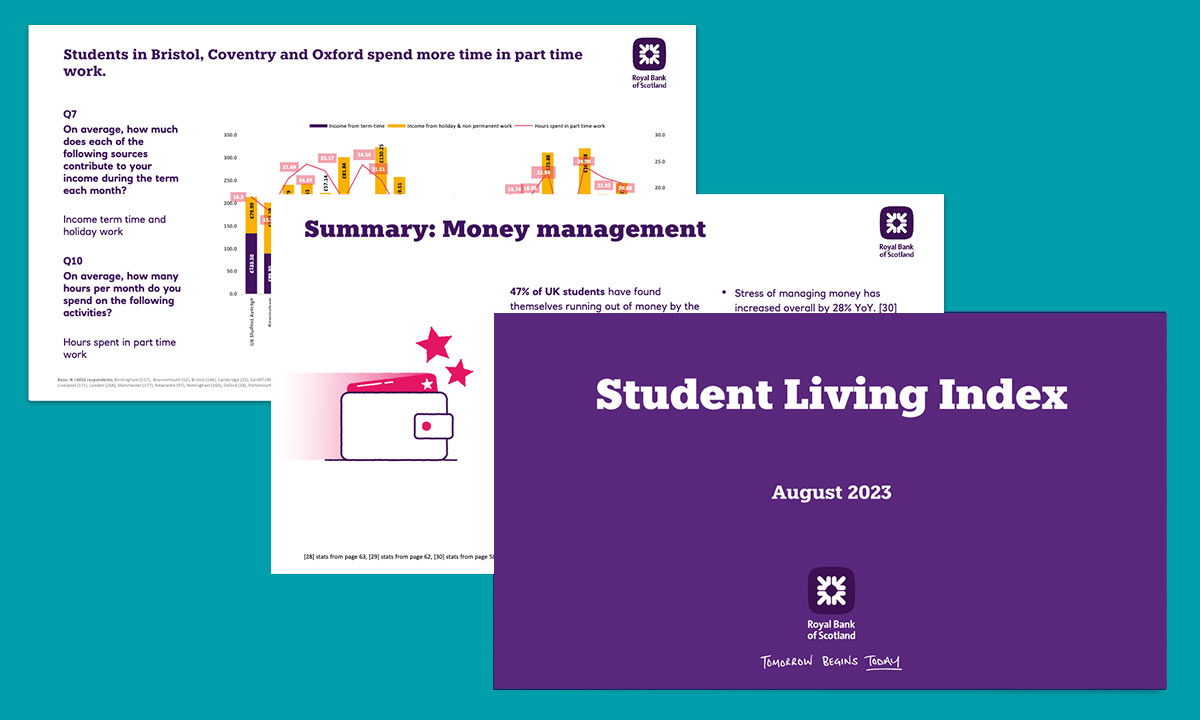Student living: how to be kind to the environment and your wallet
With more emphasis than ever before on the impact of climate change, here are 10 simple ways you can live more sustainably as a student – and save some money along the way.

Taking the leap into university life can be tough, which is why MoneySense has created this series of articles to help your teen adjust to and build confidence in their independent life. Why not share this with them?
Moving to uni and getting to grips with independent life is challenging enough – so how exactly can you go about living a more environmentally friendly existence without it spiking your living costs? Follow the tricks and tips below and you’ll discover that going green can actually help you save money – and with a recent NUS survey showing 91% of students are concerned about climate change, you’ll be in good company.
1. Buy in bulk
It might seem obvious, but buying certain key household items in bulk (think dried pasta, washing detergent and loo roll) will limit the amount of single-use plastics you use and save you money. Better yet, see whether your area has a zero-waste store – a fast-growing trend – where you can refill bottles and buy dry ingredients without requiring any new plastic at all.
2. Invest in reusables
From keep cups to refillable water bottles, canvas bags and even reusable cutlery, there are plenty of ways to ensure your day-to-day existence doesn’t require single-use items – saving you valuable money as well as the planet. There are also lots of eco-friendly alternatives out there to explore, such as bamboo toothbrushes and 100% recycled loo roll. Oh, and plastic straws? No thanks.
3. Be energy smart
It’s not just about turning the lights out when you leave the room – no doubt something your parents have already drilled into you. Did you also know that laptops, TVs and phones all keep using electricity while they’re on standby, burning up unnecessary energy and increasing your bills? Instead, be smart about how and when you turn the power on. Likewise, don’t leave your phone on charge overnight.
4. Get hot on heating
Put an extra layer or two on before cranking up that thermostat – and make sure you and your flatmates aren’t leaving windows open while the heating’s on. It’ll be good practise for when you move out of halls and into rented accommodation, where you’ll be responsible for paying utility bills such as gas and electricity. As you’ll discover, they’re not cheap!
5. Don’t let your money drip away
It’ll surprise you how much water wastage can cost (one drop per second can add up to 10,000 litres a year!) – and that’s before you factor in the environmental impact. There are plenty of ways to avoid it, though, from taking shorter showers to using a washing up bowl rather than running water and turning off the tap while you brush your teeth. Likewise, when it comes to cooking, only ever boil the amount of water you need, and pop the lid on your pan when it’s on the hob – it’ll vastly reduce the energy required.
6. Remember to recycle, reuse and donate
You don’t need us to tell you that fast fashion isn’t sustainable for the planet – and while the clothes might seem better value at first glance, they’re often poorly made and so a worse investment long-term. Instead why not refresh your wardrobe with a trip to a vintage or charity shop, or organise a clothes swap with some friends? And if it has a hole in it? Pick up that needle and thread before you throw away an otherwise perfectly good item. You’ll also be surprised by what you can recycle, both in terms of textiles and other student household essentials such as printer cartridges.

7. Hop on your bike
Or feet. Or the bus. But if you have to get somewhere by car, do your best to car share, and if you really need a car yourself, try and make sure it’s as eco-friendly and low emission as possible. Just think of the savings when it comes to petrol money and road tax.
8. Turn to tap
Get this: bottled water is, on average, 500 times more expensive than tap water. That’s the equivalent of paying £1,500 for a pint of lager or a glass of wine – and that’s before you factor in the additional eco implications of the plastic bottles and food miles. So: tap is top.
9. Eat less meat…
...And more seasonal, locally grown veggies, pulses and grains. They’re full of energy, filling, can be cheap (especially if you find a local greengrocer or shop that offers loose veg that isn’t wrapped in unnecessary plastics) and will make a huge difference to your carbon footprint, since animal agriculture is responsible for around 15% of global greenhouse gas emissions. Find out more about how to eat affordably in our weekly food shop article.
10. Get involved
Living a more eco-friendly existence is an ongoing challenge, and as such most universities will have an Environmental Society that works towards bettering its green credentials. You can also find out where your uni ranks in the People and Planet’s independent sustainability league, and find out ways in which you could further your own institution’s efforts.
Image credits: iStock
Find out about all the latest MoneySense articles for parents by following us on Facebook
Related activities
Want your teenager to find out more for themselves? Here are some activities to share with them.

 Articles:
Articles: 
 Information:
Information: 



